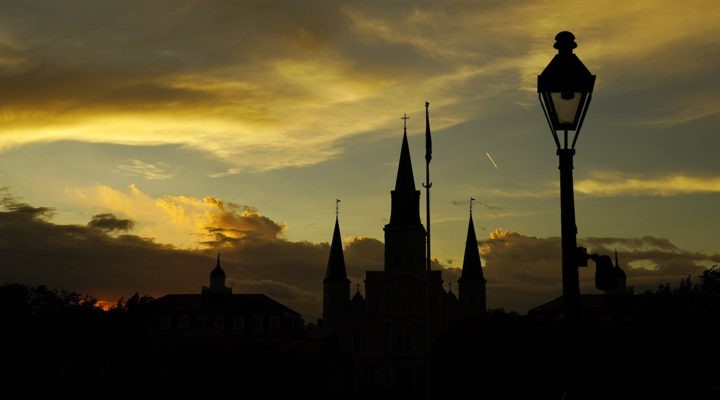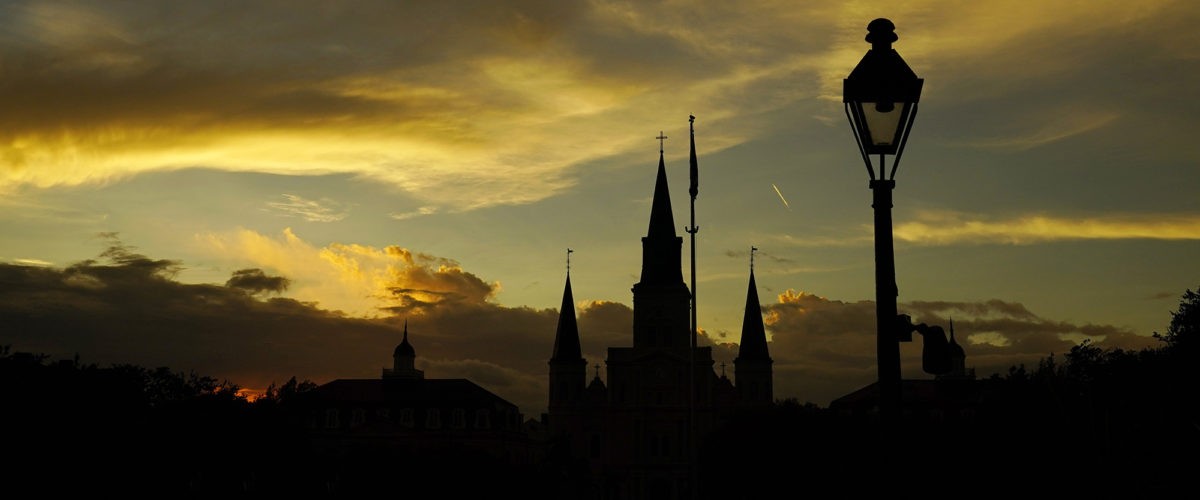Ministers and congregations eager to provide material assistance to Louisiana and Mississippi residents affected by Hurricane Ida are mostly going to have to wait before taking action, Cooperative Baptist Fellowship leaders and ministers said during an Aug. 30 Zoom call.
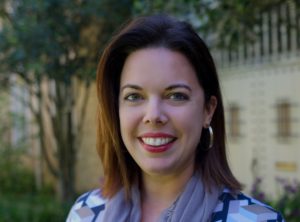
Elizabeth Mangham Lott
“We can’t put too much of a plan in place until we get more information,” said Elizabeth Mangham Lott, pastor at St. Charles Avenue Baptist Church in the heart of New Orleans. She organized the virtual gathering to update fellow clergy and supporters about her and her family’s well-being a day after the Category 4 storm made landfall near Port Fourchon, La., and to brainstorm response ideas for the hard-hit region.
Lott told participants that she, her husband and children evacuated ahead of Ida to Birmingham, Ala., where they anticipate possibly staying up to several weeks until the New Orleans power grid and sewer systems are repaired and schools reopened.
“Two-thirds of my congregation stayed, which is pretty shocking,” she said, adding that she and her membership are meeting twice daily by Zoom. “So far, everyone is accounted for. There are some trees on houses, and the process of submitting applications to FEMA has gotten underway.”
Lott also relayed what she knew about damage sustained in New Orleans and outlying communities. Cell phone towers and power stations have been leveled, and small towns in the region were flooded, leading to numerous ongoing rescue attempts by authorities and the “Cajun Navy” — volunteers in boats plucking people from their rooftops and attics. News reports said at least one person was killed during the storm.
“And with climate change, that is going to be a problem we are going to continue to have,” she said.
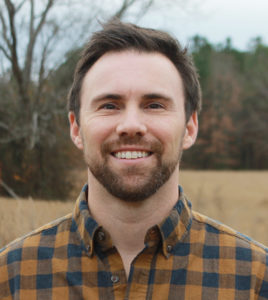
Andy Hale
Andy Hale, senior pastor at University Baptist Church in Baton Rouge, La., shared that the community there suffered widespread power outages and downed limbs, with much more serious impacts in areas east and south of the city.
Jason Coker, coordinator of CBF Mississippi, said some communities in his state experienced heavy flooding, although he was not affected in Jackson.
Ministry leaders in states from Alabama to North Carolina made offers of assistance.
Among them were Hale, who said his church, located an hour from New Orleans, would be an effective staging area for materials and volunteers delivering water and clean-up materials. The church has played a similar role in response to previous storms.
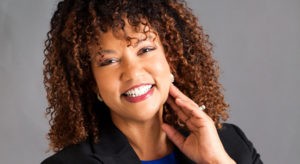
Daynette Snead Perez
Daynette Snead Perez, domestic disaster response manager for CBF, said it is too early to send resources or designate staging areas. She encouraged churches to assemble cleanup buckets and collect bottled water, but to hold off on delivery until needs are known and volunteers are cleared to enter affected areas.
She explained that local residents and authorities are currently assessing damage and first responders are conducting search-and-rescue operations in the region. CBF Louisiana also is still in the process of gauging needs. “Then we can find out how we can serve the community,” she said.
Truckloads of bottled water were sent to North Carolina after Hurricane Florence in 2018 but before there was a place to store it, she recalled. “So, we need to have local responders tell us what they need and place it where they want us to place it.”
Giving money may be the best initial response, said Coker, who reminded participants that CBF is not a first-responder agency. “We are on this call because of good will, but it’s not useable right now. I think patience on our part has to be there so when the green light is given, we can start doing it as fast as possible.”
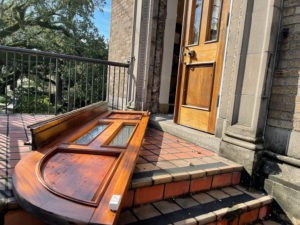
Local volunteer are on the scene repairing a sanctuary door that blew off at St. Charles Avenue Baptist Church in New Orleans.
Lott suggested her congregation’s relief fund as a target for giving to hyper-local recovery efforts. Snead Perez said CBF is collecting donations for its Hurricane Ida response online.
Lott also welcomed CBF’s connections with first-responder groups in staying connected to developments in New Orleans while she is in Birmingham trying to figure out what’s going on in her church and community. “My primary source is the NOLA Twitter crowd,” she explained.
In an e-mail to participants after the Zoom meeting, Lott said she was grateful and surprised by the turnout: “I was unprepared for 30 colleagues from a dozen states — OK, NC, MS, AR, TX, GA, AL, KY, LA, SC, DC, VA. Your kindness and presence were an unexpected gift to me in this bizarre time.”
Related articles:
Here’s another thing they don’t teach pastors in seminary
Eating Rice Krispy treats amidst the devastation of south Louisiana
CBF’s new disaster response coordinator brings diversity of experiences to the job

